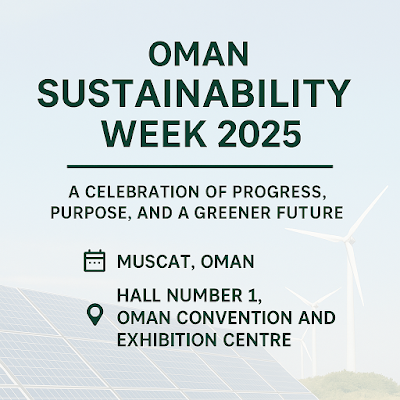Sustainable Eid ul-Fitr 2025: How to Celebrate the Festival of Joy Without Harming the Planet
A Story of an Eid That Changed My Perspective
That night, as I scrolled through my phone and saw images of overflowing bins outside households and Eid shopping chaos, I couldn’t help but ask—can we celebrate Eid ul-Fitr with the same joy and spirit, but in a way that respects the Earth too?
The answer is a heartfelt yes.
Islam and Sustainability: A Quranic Story That Teaches Us to Respect Nature
When we talk about sustainability in Islam, one powerful example stands out—the story of the People of Saba, found in Surah Saba (34:15-17). This Quranic story is one of the earliest and most relevant environmental lessons for Muslims today.
Allah blessed the People of Saba with fertile lands, flowing rivers, and green gardens. They lived in a perfect balance with nature. The Qur’an describes it beautifully:
"There was for [the tribe of] Saba in their dwelling place a sign: two gardens on the right and on the left. [They were told], 'Eat from the provisions of your Lord and be grateful. You have a good land and a forgiving Lord.'"
(Surah Saba 34:15)
But their downfall came when they became wasteful, arrogant, and ungrateful. Instead of protecting the blessings they had, they abused the land and ignored Allah’s signs. As a result, their lush gardens were destroyed by a massive flood, leaving behind barren and dry land.
This Quranic environmental warning teaches us a vital truth:
✅ When we fail to preserve nature and live sustainably, we risk losing Allah’s blessings.
This story ties directly into today’s climate issues. Islam teaches us to be stewards (Khalifah) of the Earth, to avoid Israf (wastefulness), and to live in harmony with the natural world. A sustainable Eid ul-Fitr, rooted in these values, is a beautiful way to honor both our faith and our planet.
Islamic Teachings That Promote Sustainability & Green Living
Islam is deeply rooted in the values of environmental responsibility, balance, and moderation. The Quran and Hadith emphasize that believers are caretakers of the Earth, and that protecting natural resources is part of our faith.
These Islamic teachings on sustainability not only encourage eco-conscious living but also remind us that our actions have consequences—both in this world and the next.
🌟 7 Beautiful and Eco-Friendly Ways to Celebrate Eid ul-Fitr
Skip fast fashion. Support local tailors, choose organic or recycled fabrics, or restyle last year’s outfits. You’ll look just as festive—and feel even better.
2. 🎁 Give Meaningful, Green Gifts
Instead of plastic toys or mass-produced items, consider gifting:
-
Potted plants
Handmade crafts
-
Digital gift cards
-
Donations to a cause in the recipient's name
Wrap gifts using recycled paper or traditional fabric wraps like furoshiki.
3. 🍽️ Host a Zero-Waste Eid Feast
-
Plan your menu wisely to reduce excess.
-
Share surplus food with neighbors or shelters.
-
Use reusable cutlery and tableware.
-
Compost organic waste.
4. ✨ Decorate the Green Way
Use:
-
DIY paper lanterns
-
Recycled fabric buntings
-
LED fairy lights
-
Natural elements like flowers and leaves
Skip single-use plastic banners and balloons.
5. 🤲 Give Zakat and Sadaqah to Eco-Causes
Support organizations working on:
-
Clean water initiatives
-
Reforestation projects
-
Sustainable livelihoods
This aligns both your charity and your values.
6. 🚗 Travel Mindfully
Walk, cycle, carpool, or use public transport to reduce your carbon footprint. If relatives are far away, consider virtual greetings or staggered meetups.
7. 👨👩👧👦 Teach Kids the Value of Sustainable Celebrations
Get children involved in:
-
DIY eco crafts
-
Planting trees
-
Packing donation boxes
-
Understanding waste and recycling
Why These Teachings Matter Today
With the rising threat of climate change, pollution, and environmental degradation, Islamic guidance on sustainability is more relevant than ever. From zero-waste iftars to eco-conscious Eid gifts, there are countless ways to align our celebrations with our values.
By embracing green practices, we not only protect the Earth—we earn spiritual rewards and set an example for our communities.
When we reduce waste, give thoughtfully, care for animals, conserve water, and avoid extravagance, we’re not just being environmentally conscious—we’re living our faith through action.
So this Eid ul-Fitr, let’s remember: Protecting the Earth is not a modern trend—it’s a timeless Islamic responsibility.





Comments
Post a Comment